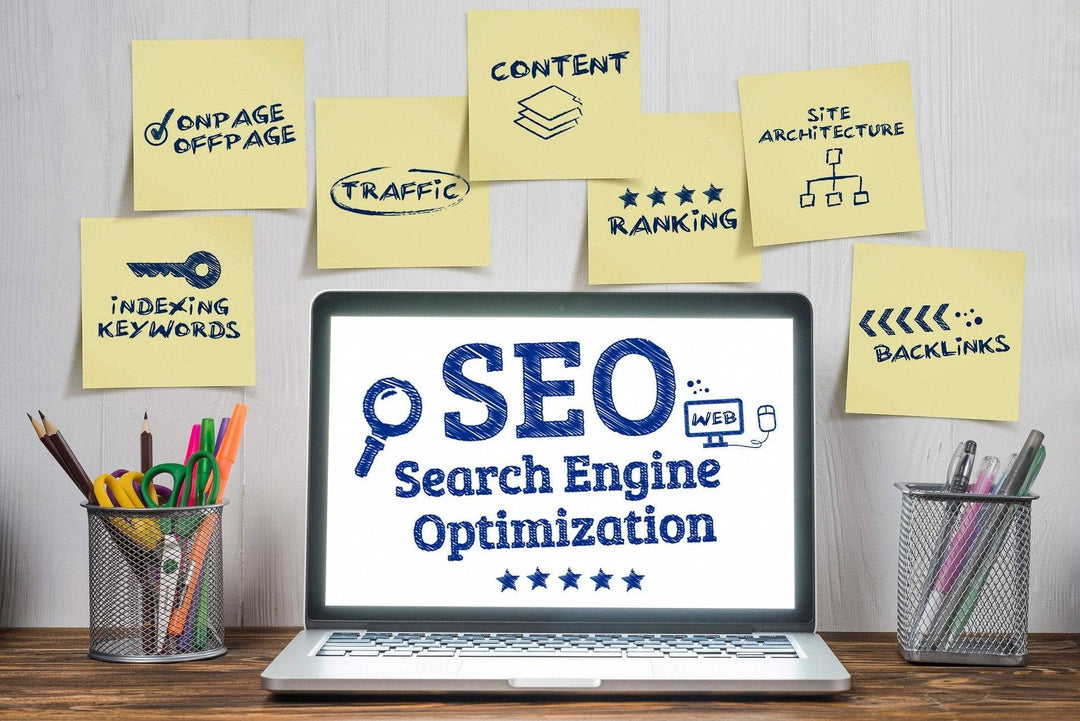Google is becoming increasingly user-centric. To analyze, assess, and give the best of the best outcomes, they use artificial intelligence (AI), machine learning (ML), natural language processing (NLP), and other cutting-edge technology.
Google launched the EAT (Expertise, Authoritativeness, and Trustworthiness) content strategy, which includes measures like search intent, page speed, mobile-friendliness, and dwell time as ranking considerations. A rich user experience includes all of these elements.
Interestingly at present, Google employs about 200 ranking signals to determine where your sites should be ranked. But, what about creating material that is optimized for all 200 of these signals? Sounds impossible, right! Fortunately, not all of these signals are equally essential, and you can tailor your content to focus on the elements that have the most sway.
There was a time when Google looked for keyword repetitions in your content or the number of backlinks pointing to your page. However, now the scenario has changed. Let's take a look at the ten ranking signals that most SEO professionals say are crucial for content marketers to focus on.
Get More Insights: TOP 10 POST-PANDEMIC DIGITAL MARKETING STRATEGIES FOR SMES & LARGE BUSINESSES
1. Engaging & Relevant Content
Many features of the content are used by Google to determine if it is the best answer for a related query. The quality of your website and blog content is still quite important. Content continues to rule supreme. As a result, merely having average content is insufficient. If you want your content to do well in search, concentrate on the factors that make it unique.

Your content must include useful information. Because of Google's Panda and Fred algorithm upgrades, creating pages with no genuine value might come back to haunt you. The more high-quality content you post, the more likely it is that you will rank for keywords throughout your whole site. Google loves content because it allows the algorithms to comprehend your area of expertise and what you do.
2. Keywords in Meta titles, URL & Meta Description
A vital suggestion for improving your website's rating is to target the proper keywords and audience. Your website may reach the top much faster than you expect if you follow the methods outlined below while choosing a keyword:
- Make a list of keywords that are pertinent to your topic.
- Determine which keywords your rivals are ranking for.
- Use third-party tools such as Google Keyword Planner to select keywords for your website that have less competition and higher search traffic.
- Brainstorm your ideas and use Google to find LSI keywords.
- Participate in forums (such as Reddit and Quora) where people ask questions about specific topics.
- Keep up with the latest industry news, since it will help you understand new jargon.
- Insert keywords into meta titles, URLs and meta descriptions to ensure better positioning of your website.
3. Page Speed
Did you ever experience a delay in accessing a webpage? Waited a few seconds for it to load and then clicked on a different result that loaded immediately? Today's web surfers are impatient! Your customers are looking for fast and quick service. Even a few microseconds saved on your site's load speed may make a big impact.
The speed of a website's pages is an important ranking element. Google will give you two scores when you enter a page to test it: one for the mobile version and another for the desktop version.
As mobile and voice search rates have climbed, people are increasingly using search engines to obtain quick answers to their inquiries throughout the day, even (and especially) while they are on the go.

Recently, the search engine included Page Experience as a metric to its ranking criteria, emphasising the significance of the user experience. In 2010, Google revealed that one of the ranking variables for their search index will be page speed. And, in 2017, Google announced that it will pay even more attention to page performance, adding mobile site speed into its "mobile-first" pages. Google is also experimenting with the Accelerated Mobile Websites Project (AMP), which aims to improve the speed with which pages load on mobile devices.
Relevant Reading: GOOGLE CORE WEB VITALS FOR SHOPIFY STORE: EVERYTHING YOU MUST KNOW
There are several factors that influence page speed. Let's have a look at the most important aspects of the web:
Largest Contentful Paint (LCP): This refers to the time it takes for a page to load. It indicates that the primary content of a page has loaded properly.
The First Input Delay (FIP): The FIP is concerned with the interactivity of a website; it indicates the time between when a user first interacts with your site and when the browser can respond correctly to that interaction.
Cumulative Layout Shift (CLS): This highlights occasions where the layout of a page shifts unexpectedly, as well as the page's visual stability. Users may mistakenly click on the wrong button on a website if the page moves.
4. Mobile-First Website

Your site must be easy to use on mobile phones and tablets if you want to reach visitors in 2022. The old norm was "mobile-friendliness," but Google has moved to a mobile-first world, which means it expects mobile visitors to be the major focus of your site design. Responsive web design is the new norm. Online customers need websites that automatically adapt to the displays of various devices, showing material in a way that consumers find comfortable.
Relevant Suggestions: 8 MOBILE MARKETING STRATEGIES TO DRIVE CONVERSION & LEADS
Users' online surfing tasks such as zooming, and scrolling are considerably reduced as a result of responsive mobile-friendly websites. A desktop version of your website should, in theory, not exist. On mobile and desktop, the site should seem identical: the layout should be basic, and the site navigation should be designed for a mobile user experience.
5. Site Structure & UX
The more well-structured your website is, the greater your chances of ranking higher in search engines. A well-structured website provides a better user experience. Google's algorithm ranks your site based on information provided by searchers. Your site will not rank well in the SERPs if it has low CTRs and a short stay time.
Read More: GET A CUSTOM BUILT ECOMMERCE WEBSITE FROM ECOMINTEGRATE
When a person sees a site, they enjoy — a site with good structure, for example — they won't bounce and will stay longer. A well-structured website may lower bounce rates and increase dwell time, both of which can enhance rankings.

Here are a few of the finest reasons to create a fantastic website structure.
- A decent site structure helps you gain quality site links. Sitelinks are awarded to websites by Google's algorithm if they have a navigable site structure.
- A robust site structure enhances crawling. Using a sitemap to improve site structure makes it much easier for browsers to access, crawl, index, and return the pages of a site with a solid structure.
- A navigable site structure is the key to improving SEO. The structure of your website prepares the road to SEO success. A strong site structure provides an unshakable SEO basis for your site, resulting in a large volume of organic search traffic.
6. Domain security & SSL Certificate
If you haven't switched from HTTP to HTTPS yet, this is the best time to do it. Your domain security is linked to your trustworthiness, which is one of the most important aspects that Google considers when ranking your content. Google does not wish to direct its visitors to a site that may not secure their personal information or may damage in any other way.
An SSL certificate is required for e-commerce sites, but it is no longer an optional extra for non-Ecommerce sites that gather any type of user data. Security has become a core website requirement. Google is moving towards a private first world. Increasing your site's security and protecting your customer data is one of the keys to enhancing your ranking.
7. Local SEO
Over the last few years, local SEO has become increasingly important. As mobile browsers continue to dominate, any company with a physical location should focus on local SEO for better national and global results.

One of the most critical and straightforward aspects of a successful SEO plan is ensuring that your Google My Company listing is set up and optimised, as well as that your business information is included appropriately in relevant local directories.
Improve Your Website Ranking
Optimizing your content for Google Ranking Factors isn’t easy! There’s a lot of information out there, and it changes often. Keeping yourself active n is crucial to remain updated. Yes! It may sound like a herculean task. However, to stay relevant and on top of the search engine, it's crucial to spend a little time enhancing your website features and content.
At eComIntegrate, our qualified digital marketers and experts will help you build your online presence and improve your ranking. To know more about website development and implement stellar digital marketing tactics, drop us a line below.
[nerdy-form:11564]






Leave a comment